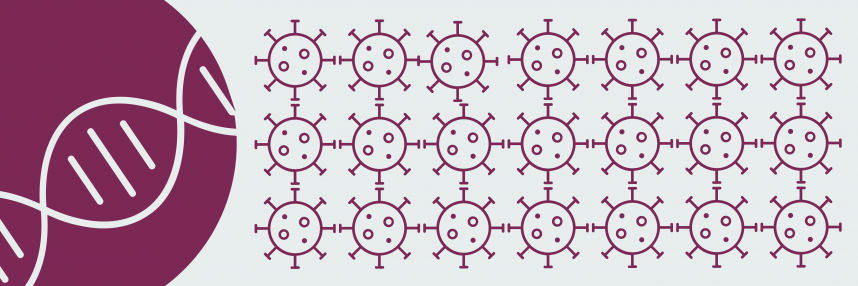Sequencing Covid-19: 1 million genomes
As the UK reaches a mega sequencing milestone, we look at how the data could be used to better prepare us for the future
The UK has now sequenced over 1 million coronavirus genomes, the UK Health Security Agency and Department of Health and Social Care has announced.
The million milestone
The UK has now contributed over 1 million SARS-CoV-2 whole genome sequences to the international Global Initiative on Sharing Avian Influenza Data (GISAID) database.
As the name suggests, GISAID was originally set up to share information on strains of bird flu but has been used to facilitate sharing data in other outbreaks, most recently the Covid-19 pandemic.
The UK’s sequencing efforts have been a collaboration between NHS Test and Trace, the Covid-19 Genomics UK (COG-UK) consortium and the Wellcome Sanger Institute in Cambridge. The country’s contribution accounts for 24% of the data collected globally.
Data and action
The data has been used to track the emergence of new virus variants – such as the Alpha variant, which was first identified in England, and to see how different variants affect transmission and disease patterns. This can, in turn, inform global decision-making about responses to the pandemic.
The most serious threat to global recovery from the pandemic is likely to be the emergence of new, more transmissible variants that can cause more severe illness or evade immune responses primed by vaccination or prior infection.
“Genomic surveillance of SARS-CoV-2 is crucial to tracking the pandemic in real time” said Wellcome Sanger Institute director, Professor Sir Mike Stratton. “Genomic data enable researchers to identify new virus variants, assess their relative abilities to spread and help public health authorities detect and respond to local outbreaks faster.”
The bigger picture
A recent study, published in Nature, has used the COG-UK data and matched the genome sequences to postcodes. The data presents a picture of multiple overlapping epidemics as each new variant swept across the UK.
“Time has proven how ingenious an idea it was to set up the COG-UK consortium at the beginning of the pandemic” said European Bioinformatics Institute research group leader and study co-author, Dr Moritz Gerstung. “Being able to see lineages side-by-side, mapped to specific locations, has been incredibly informative in terms of understanding how this series of epidemics has unfolded.”
The data also shows the effects of different events in the UK, including lockdowns and social occasions like Christmas. It also starkly demonstrates the transmissibility of the Delta variant, which had a greater spread rate than any other observed – 59% higher than that of Alpha.
Moving forward
The differences between the biological properties of the Covid-19 variants illustrates the real-world difficulty of adapting to a pandemic.
Orchestrating a public health response to a constantly changing threat at local, national and international levels poses a huge challenge, but the data could offer a more positive way forward.
“These genomic surveillance data have given us a totally new way of watching an outbreak unfold, which has taught us a lot about how a new infectious agent spreads and evolves,” said author Dr Jeffrey Barrett, director of COG-UK.
“My hope is that similar genomic surveillance programmes will be developed across the world, so that we are as well-prepared as we can be to respond to future infectious disease outbreaks – whether they be familiar pathogens or new ones.”
Learn more about Covid-19 and stay up to date with the latest genomics news in our blog series
–









